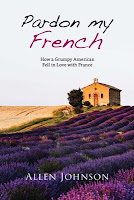Island by Jane Rogers
Inevitably drawn to any book with "Island" in the title, I was quite eager to start this one, and it gave me things I crave: windy cliffs, sandy beaches, rocky beaches, waves lapping the shore, waves heaving and breaking and pounding the shore, and pungent salt air. When I can't quench my thirst for the ocean in person, books are a nearly adequate substitution.
The island of this book is Aysaar, in the Hebrides. As far as I can tell it's a fictional place, at least I couldn't see it among the 63 island names I could find in the Hebrides. To this tiny island comes Nikki Black, 29, seeking revenge on the mother who abandoned her as an infant, and on whom Nikki blames every single problem she has ever had. That got a little tedious but the story kept me going, if only to see how it could possibly come to any conclusion.
Nikki's plan for vengeance is complicated by the existence of an unsuspected brother, a strange boy who collects found objects and lives with his mother on the island. She keeps him on a short leash, with good reason, but he and Nikki become close and he changes Nikki's life in profound ways.
Parts of this book were hard to read, maybe because ugly and unnatural thoughts and actions stand out more starkly against the beautiful, clean backdrop of sea and sky. But there is loveliness in the story, too, especially in the island folktales Calum learned growing up and now passes on to his sister.
It was a pretty good story, though bogged down by Nikki's obsession with hating and blaming her mother. It's different from anything else I've read, and though it moves slowly, you're always waiting for something dreadful to happen and that keeps you turning the pages.
I have mixed feelings about the ending. Things get sort of worked out, but not in any way that can last, and you're left with an ominous feeling about what's to come. The author does leave room to imagine a fairy tale future, but it would be inconsistent with the rest of the book. Thought-provoking endings like this are always interesting.





.jpg)


